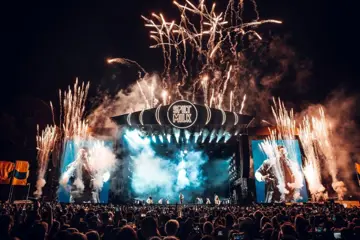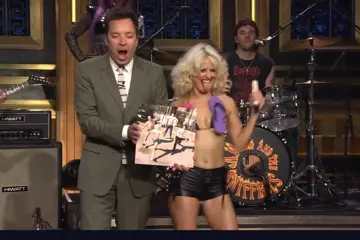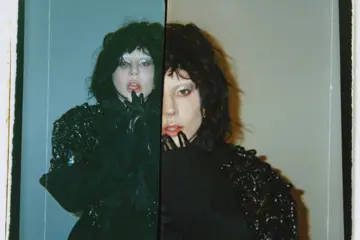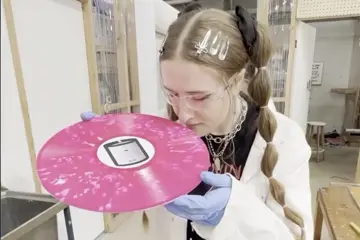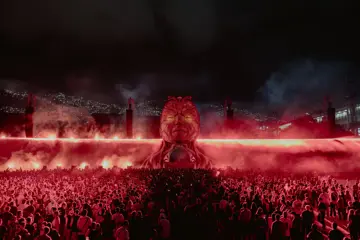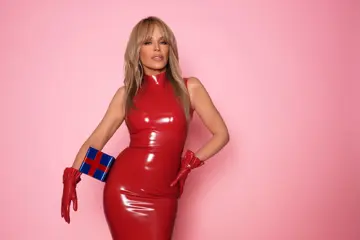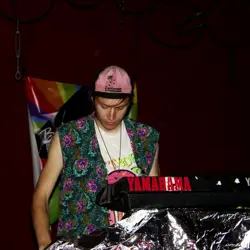 Pictureplane
PictureplaneIf known for anything - well, beyond makin' jams as Pictureplane and making out with Grimes - Travis Egedy will get etched in the rock'n'roll history-books as the bro who came up with the term 'witch-house'. Is the 27-year-old worried that, no matter where he goes and what he does, 'The Guy Who Coined The Term Witch-House' will be etched on his tombstone?
“I'm fine with it, because I don't self-identify with that sound at all, and no one really thinks that I am witch-house,” says Egedy. “The term was coined in fun, and, from that, I like what it became. Like, at first, it was just this out-of-control meme, but now I feel like it actually is a real genre, and it's become really influential to a lot of people. Not just as music, either, it became almost like this lifestyle. For that to happen is actually really rare, it was totally special. So I'm not ashamed in the slightest to be the guy who came up with witch-house; I'm totally proud.”
Growing up in New Mexico, Egedy began making music as a high-schooler rapping over the beats of other producers, recording himself on a tape-to-tape boombox. “I took it to school, and my friends were like: 'wow, this is actually really tight'. From there, I got a keyboard and some computer software, and started recording my own productions, and rapping with my friends. And that was the beginning of Pictureplane.”
Egedy would eventually find fame with 2009's Dark Rift, which arrived at the front-end of an indie obsession with early rave and '90s house, introducing his thudding electro jams to the Pitchfork realm. But it was, by Egedy's calculations, already his sixth album; he having a whole history of home-made CDR full-lengths that were never heard outside his adopted hometown of Denver.
“I'm glad that it took people a long time to discover my music. I mean, those albums I was making, I was a really young kid. It was really emo, really personal. There's so many stories these days of some young kid blowing up on YouTube or whatever; I'm so glad that that didn't happen to me when I was 19, or 20. My music wasn't really ready, and I wasn't really ready,” Egedy says. “No one really still has heard those early albums, except my friends, and I'm going to keep it that way. It wasn't until about 2007, in that real MySpace era, that people outside of Denver paid any attention to what I was doing; and it wasn't until [2009's] Dark Rift that the media really seemed interested in me.”
Egedy describes his musical explorations as being like a painter filling endless sketchbooks before fully committing to a grand canvas (“to me, I was keeping these diaries or sketch-books of drawings and paintings I was making, it just so happened that they were songs”), and undertook them whilst living and working in Rhinoceropolis, an underground, grassroots, DIY warehouse space that he helped found in 2006, and that remains open 'til now; still serving as a touring hub for underground tours.
“We were engaged in this highly-experimental way of living, which a lot of people probably don't even realise as actually possible,” Egedy eulogises, of his time there. “We were fully creating our own world, or own universe, however we wanted it to be. We had this huge warehouse space, and it was completely like a blank canvas: this place upon which we could design our own lifestyles, and live however we wanted to live. It was really anarchistic and communal; just a space of pure freedom, really. I think a lot of people truly don't know what that means. Living in society, you have your apartment, and then you commute to your job, and you're sort of in this groove where you're in this system. But, living in a place like Rhinoceropolis, where every day is different, it's like living in a palace of your own fantasy. That was hugely influential on me; it shaped my outlook on all of my life. The spirit of living there, that lifestyle-as-art kind of thing, is something that I've carried with me as I've moved on from there.”
These days, Egedy lives in Brooklyn, where he's just cut a new single, is at work on the full-length follow-up to 2011's Thee Physical, and is finishing off a photography book. “It's called Real Is A Feeling. It's 82 pages of photographs that I've acquired over my years of travelling all over the world; mostly of people, situations, strange stuff that I was doing; late-at-night, living-the-life kind of things. It's real lifestyle; a portrait of this strange life that I get to live,” Egedy explains.
“There's some photos of this one night when I was on tour with Big Freedia and Spank Rock in San Diego, which is this very conservative town, and we were playing at this club where you could tell there was a lot of money there. A lot of people were there just to sit in the VIP booths and spend a lot of money, they weren't there to see us play; so there was this definite feeling that the show was just too wild for these people. There was a lot of homophobia there, and people didn't really know what was going with Big Freedia. Then Spank Rock came on stage, and people in this VIP area started throwing ice cubes at him from, like, their bottle-of-champagne, and so Spank Rock jumped off stage and started fighting these people. It became this huge brawl with these security guards.
“They kicked us all out, everyone involved with the tour; the show was immediately over, shut down. Then, outside, loading our stuff into the van, Big Freedia opens all the doors and windows and just starts blasting bounce music really loud, and her dancers start climbing up on the roof of the van, shaking their asses, standing on their heads on the brick outside, climbing up lampposts on the sidewalk. It becomes this huge spectacle, these girls shaking their asses on top of a van; it literally stopped traffic. Big Freedia was like: 'if they're gonna kick us out, we're going to have our own party on the street'. And strangers on the street just started joining in. It was just a beautiful moment of spontaneity in the face of insanity; it was taking this instance of oppression and turning it into liberation.”
Pictureplane will be playing the following shows:
Sunday 17 February - The Liberty Social, Melbourne VIC

